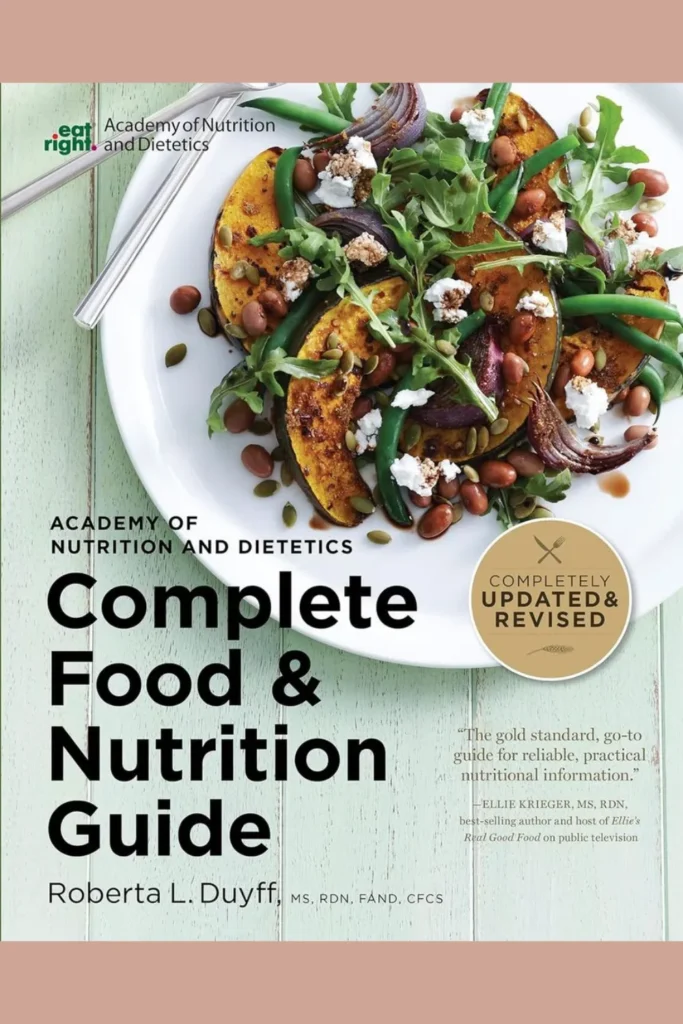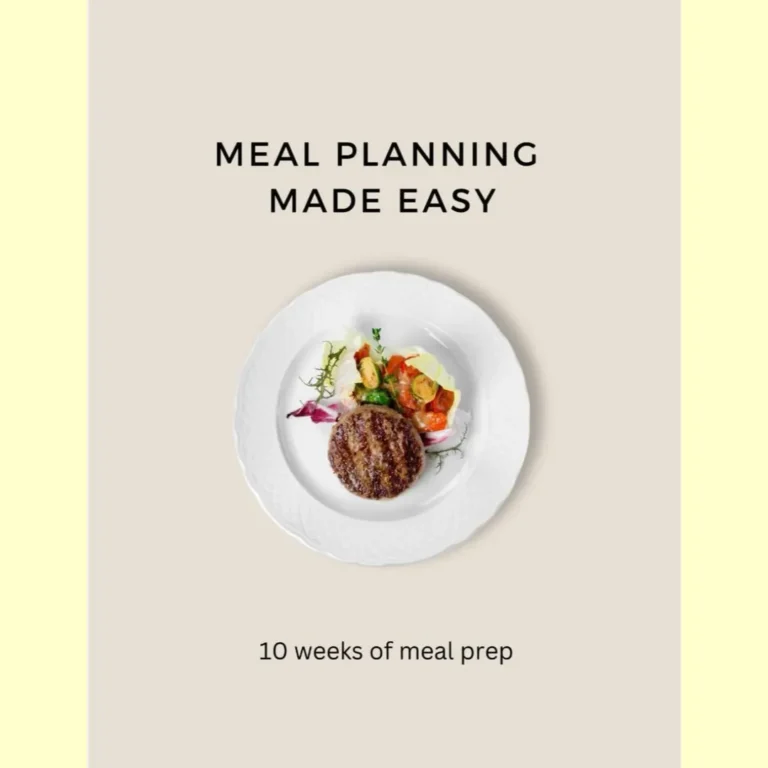Ultimate Guide to Comprehensive Nutrition
In an era where fast food chains and processed snacks dominate meal choices, the quest for comprehensive nutrition is more crucial than ever.
With a landscape of dietary advice as vast and varied as the nutrients our bodies require, sifting through the noise to find reliable information can seem daunting.
This Ultimate Guide to Comprehensive Nutrition stands as your beacon in the murky waters of diet trends and fad diets, illuminating a path towards genuine health benefits.
Here, we delve into not just what makes up a balanced diet but how to incorporate these principles into your daily life with practical recipes that don’t compromise on taste or satisfaction.
Understanding comprehensive nutrition is about more than identifying individual vitamins and minerals; it’s about recognizing how different foods interact within our bodies to promote overall well-being.
By exploring this guide, you’ll uncover not only the science behind why certain diets work but also gain access to an array of recipes designed to make healthy eating both accessible and enjoyable.
Whether you’re looking to overhaul your eating habits or simply fine-tune your diet, our insights into achieving balance through food will empower you on your journey towards optimal health.
Table of Contents Ultimate Guide to Comprehensive Nutrition
Achieve your health goals with a comprehensive diet plan
To effectively achieve your health goals, it is essential to adopt a comprehensive diet plan that encompasses not only the type and quantity of food you consume but also the recipes and health benefits they provide.
A well-designed diet plan takes into consideration your unique nutritional needs, preferences, and lifestyle, ensuring that you receive the necessary nutrients while enjoying delicious and satisfying meals.
By incorporating a variety of nutrient-rich foods such as fruits, vegetables, whole grains, lean proteins, and healthy fats, you can optimize your overall health and well-being.
Furthermore, by following a diverse range of recipes that are aligned with your dietary requirements, you can maintain enthusiasm and prevent monotony in your eating habits, helping you sustain your healthy lifestyle in the long run.
With a comprehensive diet plan in place, you can reap the multitude of health benefits that comes with nourishing your body with wholesome, balanced meals.
Explore a variety of nutritious recipes for a balanced diet
As you embark on your journey towards comprehensive nutrition, it is vital to explore a wide range of nutritious recipes to support a balanced diet.
By incorporating diverse and wholesome recipes into your meal planning, you can ensure that you are providing your body with the essential nutrients it needs to thrive.
From colorful salads packed with fresh vegetables to protein-rich stir-fries and hearty whole grain bowls, there are countless options to explore that cater to different tastes and dietary requirements.
Not only do these recipes offer a delicious and satisfying eating experience, but they also come with a multitude of health benefits.
By including a variety of vegetables, fruits, whole grains, lean proteins, and healthy fats in your meals, you can enhance your energy levels, support weight management, boost your immune system, and promote overall well-being.
So, embrace the culinary adventure of discovering new and nutritious recipes to create a balanced diet that nourishes both your body and taste buds.
Discover the endless health benefits of a well-rounded nutrition
A well-rounded nutrition plan offers a multitude of health benefits that can greatly improve your overall well-being.
By incorporating a diverse array of nutrient-rich foods into your diet, you are providing your body with the necessary fuel to function optimally.
A balanced nutrition plan supports weight management, boosts your immune system, and enhances your energy levels, allowing you to thrive in all aspects of your life.
Additionally, it promotes cardiovascular health, reduces the risk of chronic diseases, and supports mental clarity and focus.
By prioritizing the consumption of fruits, vegetables, whole grains, lean proteins, and healthy fats, you are equipping your body with the nutrients it needs to maintain strong bones, a healthy metabolism, and a vibrant, youthful appearance.
Embrace the power of a well-rounded nutrition plan and reap the benefits of improved vitality, longevity, and overall wellness.
Master the art of meal prep for a successful diet journey
To embark on a successful diet journey, mastering the art of meal prep is essential.
By dedicating some time each week to planning and preparing your meals in advance, you can ensure that you stay on track with your nutrition goals and establish healthy eating habits.
Meal prep allows you to have full control over the ingredients and portion sizes of your meals, making it easier to adhere to your dietary requirements.
Additionally, it saves you time and money by preventing impulsive food choices or relying on convenient but unhealthy options.
By preparing nutritious and well-balanced recipes ahead of time, you can avoid the temptation to indulge in unhealthy snacks or fast food when hunger strikes.
With careful planning, you can create a variety of delicious and satisfying meals that align with your specific dietary needs, whether you’re following a low-carb, vegetarian, or any other type of diet.
By mastering the art of meal prep, you are setting yourself up for success on your diet journey, ensuring that you have nutritious options readily available and making it easier to achieve your health and weight loss goals.
Transform your lifestyle with these diet tips and tricks
Achieving a transformative lifestyle through a balanced diet is not only about what you eat, but also about the recipes you choose and the health benefits they provide.
Incorporating nutritious ingredients and mindful cooking techniques can greatly impact your overall well-being.
Begin by embracing whole foods, such as fruits, vegetables, lean proteins, and whole grains, and experiment with flavorful spices and herbs to enhance the taste of your dishes without relying on excessive salt or unhealthy fats.
Additionally, stay hydrated by drinking plenty of water throughout the day and limit your intake of sugary beverages.
Prioritize portion control to maintain a healthy weight and prevent overeating, and consider mindful eating practices, such as savoring each bite and listening to your body’s hunger and fullness cues.
By making these small but impactful changes, you can transform your lifestyle, improve your diet, and reap the numerous health benefits that come with it.
Fuel your body with delicious and nutritious recipe alternatives
When it comes to fueling your body with delicious and nutritious recipe alternatives, there are endless possibilities to explore.
By incorporating a variety of nutrient-dense ingredients into your meals, you can satisfy your taste buds while providing your body with essential vitamins, minerals, and antioxidants.
Start by incorporating colorful fruits and vegetables into your recipes, as they not only add vibrant flavors but also provide a wide range of health benefits.
Experiment with different protein sources, such as lean meats, fish, tofu, or legumes, to ensure you’re getting an adequate amount of this essential nutrient.
Opt for whole grains like quinoa or brown rice, which are packed with fiber and other beneficial nutrients.
Don’t be afraid to use herbs and spices to add depth and flavor to your dishes without relying on excessive salt or unhealthy fats.
With a little creativity and a focus on wholesome ingredients, you can create meals that not only taste great but also support your overall health and well-being.
Boost your immunity with a diverse range of nutrient-rich foods
To optimize your immune system and promote overall health, it’s important to incorporate a diverse range of nutrient-rich foods into your diet.
By doing so, you can provide your body with the essential vitamins, minerals, and antioxidants it needs to function at its best.
Including a variety of fruits and vegetables in your meals will not only add vibrant flavors but also supply your body with a plethora of health benefits.
Look for colorful options like berries, leafy greens, and citrus fruits, as they are rich in immune-boosting antioxidants.
Additionally, prioritize high-quality protein sources such as lean meats, fish, or plant-based options like tofu or legumes.
These provide important amino acids that support immune function and tissue repair.
Don’t forget to include whole grains, which are packed with fiber and beneficial nutrients like zinc and selenium.
Lastly, don’t underestimate the power of herbs and spices, as they can add depth and flavor to your dishes while offering potential immune-boosting properties.
So, take a proactive approach to your health by incorporating a wide variety of nutrient-rich foods into your daily diet for optimal immunity and overall well-being.
Experience a healthier and happier you with a comprehensive approach to nutrition
By embracing a comprehensive approach to nutrition, you can unlock the potential for a healthier and happier version of yourself.
It all starts with your diet, as what you eat plays a crucial role in supporting your overall well-being.
By incorporating a balanced mix of nutrient-dense foods, you can fuel your body with the essential vitamins, minerals, and antioxidants it needs to thrive.
Experiment with a variety of recipes that feature wholesome ingredients, focusing on whole grains, lean proteins, and a colorful array of fruits and vegetables.
Not only will this provide you with a satisfying and delicious culinary experience, but it will also offer a multitude of health benefits.
Improved digestion, increased energy levels, and enhanced mental clarity are just a few of the positive effects you can expect from adopting this comprehensive approach to nutrition.
Take charge of your health and discover a better you through the power of diet, recipes, and the numerous health benefits they can provide.
In conclusion, proper nutrition is crucial for maintaining a healthy lifestyle and achieving your fitness goals.
By following the tips and guidelines outlined in this comprehensive guide, you can ensure that you are getting the right balance of nutrients, vitamins, and minerals to support your body’s needs.
Remember to listen to your body and make adjustments as needed, and always consult with a healthcare professional for personalized advice.
With a well-rounded and individualized approach to nutrition, you can optimize your health and well-being for the long term.
FAQ
What are the key components of a comprehensive nutrition plan and why are they important for overall health and well-being?
To create a comprehensive nutrition plan, you must include a balance of macronutrients like carbohydrates, proteins, and fats, as well as micronutrients such as vitamins and minerals.
Each component plays a crucial role in supporting your body’s functions, from providing energy to supporting immune function and promoting overall health.
Without the right balance of nutrients, you may experience deficiencies or imbalances that can lead to health issues.
By prioritizing a well-rounded nutrition plan, you can ensure that your body receives the essential nutrients it needs to thrive and maintain optimal health and well-being.
How can individuals assess their current nutritional intake and make necessary adjustments to ensure they are meeting their dietary needs?
To assess your current nutritional intake, keep a food diary for a week, noting everything you eat and drink.
Use online resources to track your calories, macronutrients, and vitamins.
Compare your intake to recommended guidelines and make adjustments accordingly.
Focus on incorporating more fruits, vegetables, lean proteins, and whole grains into your diet.
Consider consulting a nutritionist for personalized advice on meeting your dietary needs.
Remember to drink plenty of water and listen to your body’s hunger and fullness cues to maintain a balanced and healthy diet.
What are some common misconceptions or myths about nutrition that people should be aware of when trying to improve their diet?
When trying to improve your diet, it’s important to be aware of common myths about nutrition.
One misconception is that all fats are bad for you, but in reality, your body needs healthy fats for optimal functioning.
Another myth is that skipping meals will help you lose weight, but actually, it can slow down your metabolism.
Additionally, many people believe that all carbohydrates are unhealthy, but whole grains and fruits provide essential nutrients.
It’s crucial to educate yourself and focus on balanced, nutritious meals to truly improve your diet.
How does comprehensive nutrition impact various aspects of health, such as weight management, energy levels, and disease prevention?
Comprehensive nutrition plays a crucial role in managing your weight, sustaining energy levels, and preventing diseases.
By fueling your body with a balanced diet rich in essential nutrients, vitamins, and minerals, you can maintain a healthy weight, feel more energized, and boost your immune system to ward off illnesses.
Consistently making healthy food choices will not only help you achieve your weight goals but also enhance your overall well-being, leading to a healthier and happier lifestyle.
Remember, what you eat directly impacts your health in various ways.
What are some practical tips or strategies for incorporating more nutrient-dense foods into one’s diet and maintaining a balanced approach to nutrition in the long term?
To incorporate more nutrient-dense foods into your diet and maintain a balanced approach to nutrition long-term, focus on adding colorful fruits and vegetables to your meals, opt for whole grains over refined grains, include lean proteins like fish and poultry, and choose healthy fats like avocados and nuts.
Meal planning and preparation can help you stay on track, as well as keeping healthy snacks on hand to avoid reaching for less nutritious options.
Remember to listen to your body’s hunger and fullness cues, and make small, sustainable changes rather than drastic diet overhauls.







